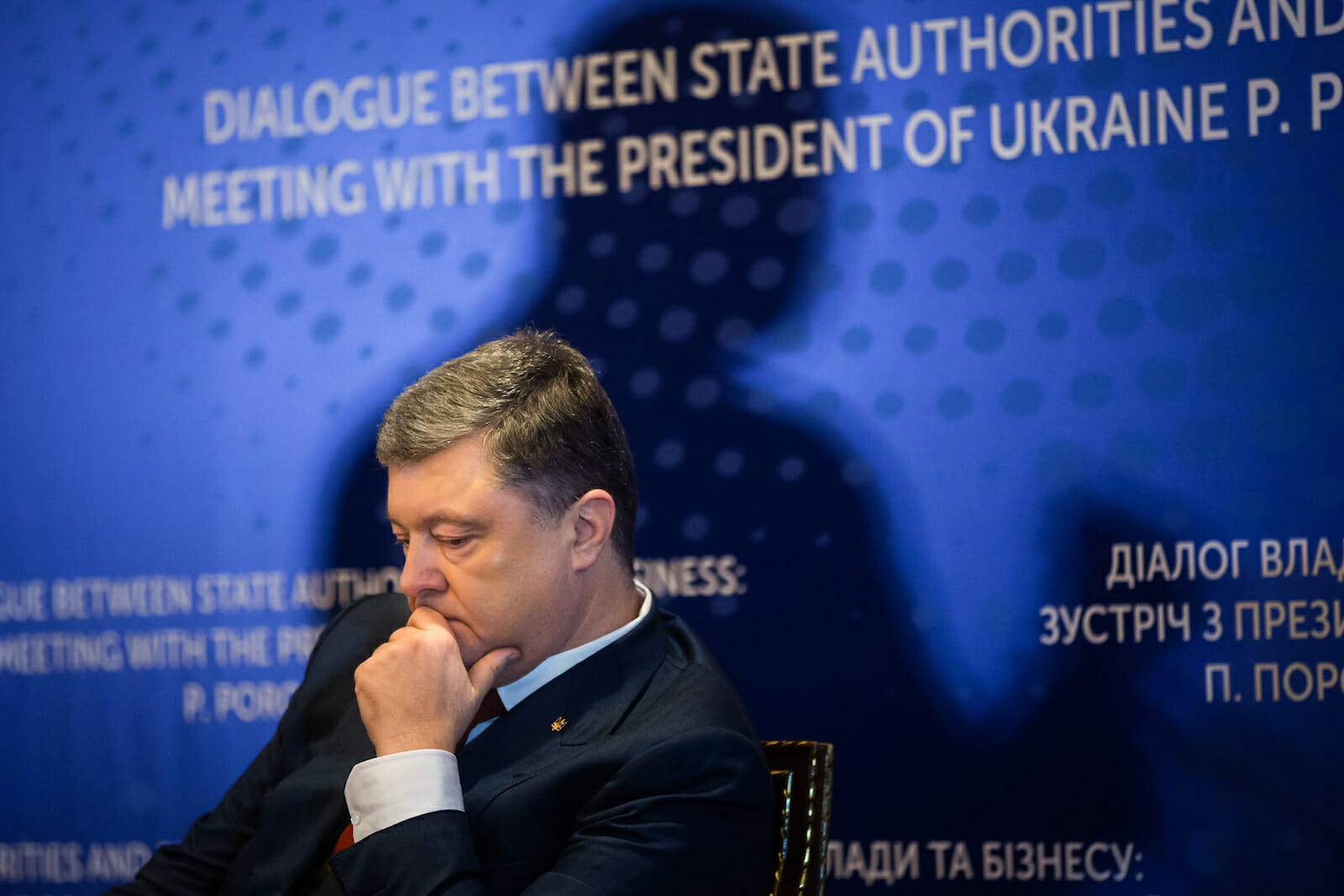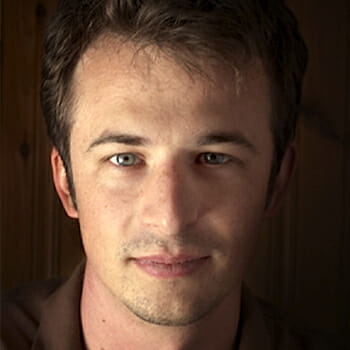
Will Putin’s Wish Come True in Ukrainian Elections?
Vladimir Putin once described the collapse of the Soviet Union as “the greatest geopolitical catastrophe of the century.” Now he is desperate to prevent Moscow’s sphere of influence from being shattered once more. In Ukraine, arguably the most important member of the old Soviet bloc after Russia itself, his officials are frantically trying to maintain Moscow’s ancient dominance through a combination of military intimidation and political barbs, the latest being a warning that Ukraine may soon cease to exist.
But, for all Russia’s pressure, Ukraine is standing firm. Under pro-European, anti-Russian president Petro Poroshenko, Kyiv has slid markedly away from Moscow, embracing progressive reforms and laying the groundwork for membership in the EU. If Putin can’t land a decisive blow soon, he may end up being condemned by future generations of Russian nationalists as the man who lost Ukraine.
For a leader who has promised to restore his country’s reputation as a major power, this outcome would be disastrous. Putin has consistently criticized those who oversaw the break-up of the USSR thirty years ago while attempting to reverse the decisions they made. Yet now he faces being cut off by the country which has closer links to Moscow than any other.
Ukraine isn’t just joined to Russia by geography. The two nations were also entangled in a web of linguistic and cultural ties. Around one in 20 Ukrainians identifies themselves as ethnic Russian (the figure was far higher before the annexation of Crimea) and the majority of the population speak both languages. Moscow has long regarded Kyiv as its fiefdom, dating back to the Tsars and the appendage they called ‘little Russia,’ and the long history of Soviet rule has entrenched this opinion. Putin, who claims Russians and Ukrainians are one people, has made it his mission to honor this legacy.
Faced with a surge of anti-Russian sentiment in Ukraine following the Maidan revolution of 2014, Putin has snatched Crimea away from Kyiv and spent the last four years waging a proxy war in the eastern Donbas region, backing pro-Russian separatists with money, intelligence, and even troops. In addition to this campaign – which some analysts believe costs $2 billion a year – Moscow has imposed sanctions on hundreds of Ukrainians and staged several provocative acts, including the erection of a fence along the Crimean border.
Now, with the Donbas offensive at a standstill and Putin’s approval ratings plummeting due to unpopular domestic reforms, Western observers fear that the Russian leader is preparing a full-scale offensive. This concern was sparked by November’s spat in the Kerch Strait when Russia seized three Ukrainian vessels and captured 23 sailors. Despite sustained international pressure, the Kremlin shows no sign of freeing the prisoners or apologizing for its aggression; in fact, the latest reports suggest a major build-up of Russian military firepower, both in Crimea and along Ukraine’s eastern border. Poroshenko claims that 80,000 troops have been assembled, backed by tanks, aircraft, and rocket launchers.
Yet far from being daunted by Moscow’s muscle-flexing, the Ukrainian leader has turned it to his advantage. He’s used it to further his pro-European agenda, insisting Ukraine is “firmly on the path” towards the EU and NATO and that Putin is simply bitter about its progress. He’s even used the Russian provocation as the pretext to build closer relations with Angela Merkel and Emmanuel Macron, two heavyweight European leaders whose support is crucial to his personal crusade.
Since succeeding the pro-Russian Yanukovych, Poroshenko has steadily, inexorably inched Ukraine away from Moscow and towards Brussels. He’s severed a friendship treaty with Russia while driving a key constitutional change that will facilitate both EU and NATO memberships. A new association agreement with the EU has triggered a huge rise in bilateral trade, significantly reducing Ukraine’s commercial reliance on its neighbor, and Ukrainian has become the required language in secondary schools as part of a concerted campaign to marginalize Russian and encourage indigenous culture.
But the most significant change has been the secession of the Ukrainian Orthodox from the Russian Patriarch. For centuries, religion has been the central nexus linking Moscow and Kyiv. The two sides trace their faith to a single event in the tenth century, and the Russian Orthodox Church has claimed Ukraine as part of its patrimony since 1685. This cord was finally broken in December when a Ukrainian conclave formally created its own church. Poroshenko, who claims Russian clerics support the Donbas insurgency, described it as a “day of final independence.” Some went even further. One researcher wrote that, for Ukraine, the achievement of autocephaly could be as significant as the break-up of the USSR.
Now, though, Putin may have the chance to claw background. Ukraine will hold fresh elections in March, pitting Poroshenko against firebrand former Prime Minister Yulia Tymoshenko, whose candidacy is causing serious concern among reformers. Not only has Tymoshenko promised to reverse Poroshenko’s reforms; she’s widely suspected of maintaining links with the Kremlin. Many remember the alliance she formed with Moscow back in 2008, to challenge then-President Viktor Yushchenko – who, like Poroshenko, was pushing for closer ties with the West – and wonder whether she will do another deal with Putin to restore Russian hegemony.
Opinion polls published ahead of the campaign put Tymoshenko ahead. Her populist pledges resonate with a population that, despite strong economic growth, have yet to see any discernible improvement in the healthcare system or a rise in their pension payments. Such concerns play directly into Putin’s hands, and many suspect Russia will throw its own weight behind the opposition campaign. Ukrainian intelligence sources say Russia has allocated an extra $350 million to its intelligence agencies in an attempt to destabilize Ukraine, primarily by meddling in the forthcoming vote.
For both Poroshenko and Putin, a final showdown is looming. If the Kremlin gets its preferred outcome, Russia may yet be able to reverse the tide and restore its old sphere of influence. But if Poroshenko prevails, Putin will be forced to watch history repeat itself, this time on his watch. Having spent his presidential tenure trying to restore the influence of the Soviet Union, it would be the bitterest of defeats.
